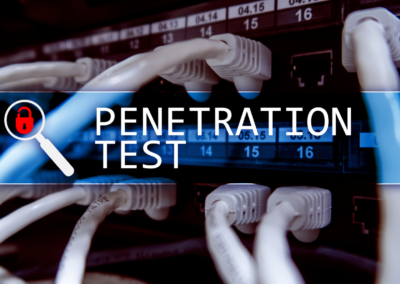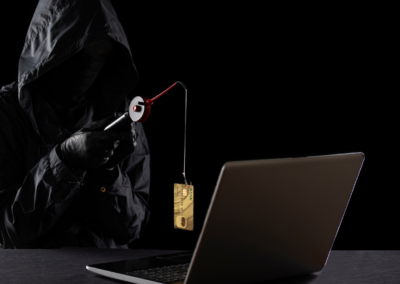Welcome to the fast-paced digital era, where cybersecurity is not just a buzzword but a critical aspect of our lives. Every click, every search, and every data transfer can expose us to potential threats. DNS (Domain Name System) is a key player in maintaining online security. This comprehensive guide will show you the ropes of conducting a DNS secure test and how it can help fortify your online presence. Buckle up, and let’s dive deep into DNS secure testing.
DNS Secure Test:

Understanding the DNS secure test is more than just understanding how DNS works. It’s about appreciating its role in the broader context of online privacy.
What’s DNS, Anyway? Domain Name System (DNS) is the phonebook of the internet. It translates human-friendly domain names like ‘example.com’ into IP addresses, which computers use to identify each other on the network.
So, Why Should You Test It? Well, it’s simple. If your DNS leaks, so does your browsing history and online activity. That’s where DNS secure test comes in, ensuring that your DNS requests are securely and adequately routed without any leaks.
Conducting a DNS Secure Test: A Step-by-Step Guide
Conducting a DNS secure test isn’t rocket science but requires a systematic approach. Here are the basic steps:
- Identify your DNS servers and the data they handle.
- Define what ‘normal’ looks like for your DNS traffic.
- Use DNS testing tools to simulate potential attacks.
- Analyse the results and identify potential vulnerabilities.
- Implement necessary fixes and countermeasures.
- Document your findings for future reference.
Manual DNS Secure Test Vs. Automated Tools
Regarding DNS secure testing, you have two main approaches: manual testing and using automated tools. Manual testing gives you complete control over the process, but it’s time-consuming and requires technical expertise. On the other hand, automated tools make the process faster and more efficient but may not provide the granular control that manual testing does.
Choosing between the two depends on your needs, resources, and the complexity of your DNS setup.
Top DNS Secure Testing Tools in 2023
Finding the right tool for DNS secure testing can be like finding a needle in a haystack. There are several tools available, each with its strengths and weaknesses. Some of the top tools 2023 include DNSSEC Debugger, DNSViz, and DNSInspect. These tools offer comprehensive testing features that can help uncover potential vulnerabilities in your DNS setup.
The Realities of DNS Security
When discussing DNS security, we’re not just about preventing leaks. We’re addressing a comprehensive strategy to protect users online.
The Dangers of Ignoring DNS Security DNS-based threats can range from phishing attacks to malware distribution. Ensuring that your DNS is secure protects you from a multitude of cyber-attacks.
DNS Securities: Beyond Just Leaks DNS securities encompass protective measures such as DNSSEC, which safeguards against unauthorised domain name alterations.
Why DNS for Security is Non-Negotiable
Online safety isn’t a luxury; it’s a right. So why is DNS central to this conversation?
- Faster, More Reliable Browsing Secure DNS servers provide safer, faster, and more dependable browsing experiences.
- Protection Against Common Threats A DNS configured with security protects against phishing, cache poisoning, and other common online threats.
DNS Leak Test: A Brief Overview
We’ve talked a lot about DNS and security, but how do you know if your DNS leaks?
- What’s a DNS Leak? In simplest terms, it’s when outsiders, like your internet service provider, can see your online activity, specifically your DNS requests.
- How Do I Test for It? Various online tools, such as Cloudflare DNS leak test and DNS leak test surfshark, can be used. These tools check whether your DNS requests are being sent through the VPN tunnel and if they’re visible to external entities.

Additional Testing: Beyond DNS
While DNS tests are vital, you shouldn’t stop there. Additional tests can give a holistic view of your online security.
- IP Leak Test As crucial as the DNS leak test, the ip leak test checks if your IP address is visible and potentially exposed to websites and services you visit.
- VPN Leak Test This verifies if your VPN is working correctly, ensuring that your IP address and DNS requests remain private.
- WebRTC Leak Test WebRTC allows browsers to communicate directly with each other. However, it can also unintentionally expose your IP address.
DNS Speed Test: Does Security Compromise Speed?
A common misconception is that higher security equals slower speeds. But is that the case?
- Balancing Speed with Safety With the right DNS provider, you can have both. DNS speed test tools help you determine which servers offer the best combination of speed and security.
Conclusion
Your journey to a safer online experience begins with understanding and acting on DNS security. The DNS secure test isn’t just another tech jargon; it’s your first line of defence in the vast digital realm. So, the next time you’re online, remember security isn’t a game of chance. It’s a choice. Make the right one.
Having seen the critical role secure DNS testing plays, it becomes paramount to trust this essential task to be experienced and skilled professionals. Nextdoorsec is one such cybersecurity firm dedicated to helping businesses establish a secure online presence.
FAQs
1. How do I know if my DNS is secure?
Check for DNS vulnerabilities and ensure DNSSEC is enabled on your DNS server.
2. How to test DNS over HTTPS?
Use sites like Cloudflare’s “Browsing Experience Security Check” or specific network tools to check if DNS over HTTPS is active.
3. How do I test my DNS server?
Use online tools like Google’s namebench or command-line tools like nslookup or dig.
4. How often should I conduct a DNS secure test?
It’s advisable to run a test every time you connect to a new network or at least once a month to ensure consistent security.
5. Are there any free tools available for DNS leak tests?
Yes, numerous free tools online, like Cloudflare DNS leak test, can assist you in checking for DNS leaks.
6. Can my VPN protect against DNS leaks?
A good VPN should, but it’s always wise to double-check using tools like the VPN leak test to be safe.
7. Does WebRTC leak pose a major threat?
While not as common as DNS leaks, WebRTC leaks can expose your IP address, so testing for and preventing them is essential.
8. Is there a significant difference between DNS security and DNS for security?
“DNS security” often refers to the broader concept of securing DNS, while “DNS for security” focuses on using DNS as a tool or mechanism for online safety.
9. Can changing my DNS provider increase my security?
Absolutely! Choosing a reputable DNS provider with a strong focus on security can significantly boost your online protection.






0 Comments